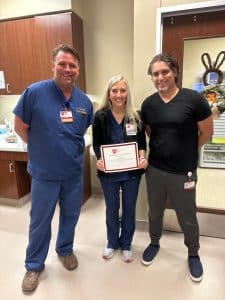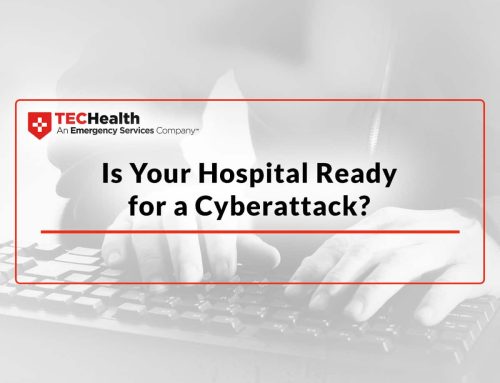Ask most healthcare leaders for two things that are in short supply, and you’ll likely get the same response: time and money. Ask frontline staff and you may hear something different: recognition for a job well done.
Addressing the later issue of recognition doesn’t have to add to the cost of either of the former concerns. In fact, done right, employee recognition efforts can have a significant positive impact by increasing workforce motivation, and productivity, and reducing turnover.
“People who work in healthcare usually have kind of an altruistic personality anyway, but when you call someone out for the good that they’ve done, it still goes a long way,” says Joel Betz, MD, Regional Medical Officer at TECHealth, An Emergency Services Company™.
While there’s an entire industry around employee recognition, he says that keeping it simple and in-house can have just as great an impact as trying to create a formal program.
Balancing The Positive & The Negative
“We’ve done a couple of really easy things,” explains Betz, who has more than 11 years of experience in healthcare management. “One is what we call 5-1.”
The concept is based on extensive research both in business and relationships. It shows that effective and efficient global organizations have at least five positive interactions between team members (or customers) for every one negative interaction. The same ratio also largely holds of lasting marriages versus those ending in divorce.
The goal of the 5-1 program Betz implemented at Arizona’s Dignity Health emergency room isn’t to keep an official tally of positive vs. negative interactions. Rather it’s to normalize and make recognizing great work as easy as possible for all team members.
Betz encourages everyone on the team to shoot him a quick text or email or give him a brief call sharing details about a colleague they want to call out at the next “5-1” for doing something helpful—whether it was part of their expected daily work or an example of them going above and beyond. He then takes a few moments at his regular leadership meeting to call out those individuals and what they did. He follows up by sending a thank you email to the employee, copying his or her direct leaders.
“When you recognize them in front of their leadership team, nine times out of ten, their own leaders will then recognize them further which really takes it to another level,” says Betz.
In addition to fostering a culture of appreciation, it can also help further patient safety. Betz recalls recognizing one Radiology Technologist who caught something on a film that even the radiologist didn’t, which helped the patient have a better outcome. Publicly praising such actions encourages others to speak up for safety as well.
Getting The Recognition Ball Rolling
The evidence for affirming healthcare workers as a culture builder goes beyond Betz’s own experience.
A 2021 Harvard Business Review article that looked at research on social recognition of employees in select service fields—including healthcare and social work—found that social or symbolic recognition was even more effective than monetary incentives in increasing employees’ feelings of satisfaction and being valued. This translated into positive organizational results, such as increased productivity and less likelihood of leaving.
For healthcare leaders looking to be more proactive in recognizing their team members, Betz and research offers these guideposts:
- Make it personal: The recognition should include specifics on what the individual did to earn it and be given/presented by either their direct leader or a senior leader.
- Public vs. private recognition: Both are important, but public recognition in front of peers can have an even bigger impact on the individual as well as the team.
- Keep it frequent but not forced: Daily recognition may not be as meaningful and can be difficult to sustain over time. Recognizing employees during a regular weekly or monthly team meeting or upon completion of an initiative or particularly challenging time is probably a good cadence.
“We do our 5-1 recognition at a meeting every couple of weeks,” says Betz.
Engage other leaders: In healthcare, having doctors recognize nurses and techs can be just as meaningful (if not more so) than receiving recognition from management. Leaders should be sure to promote whatever recognition process they implement with their medical staff.
“The key is taking the resistance out of creating a positive feedback loop by making it as easy as possible,” says Betz. “This loop in turn creates a culture of gratitude and an overall healthier organizational culture.”

Joel Betz, MD
Regional Medical Officer





